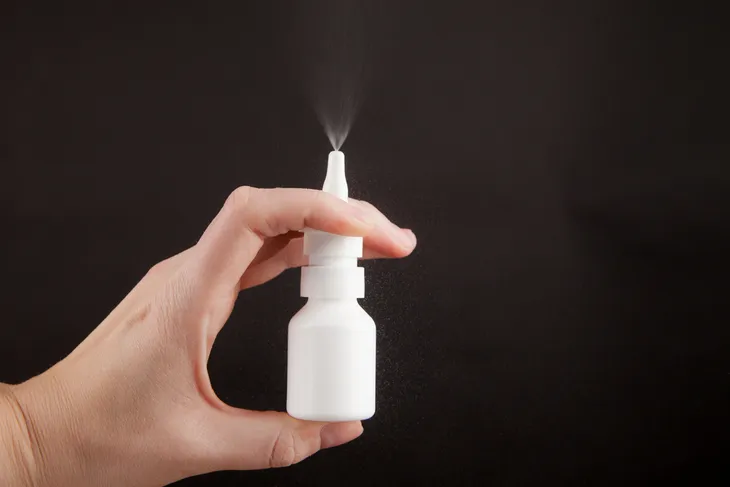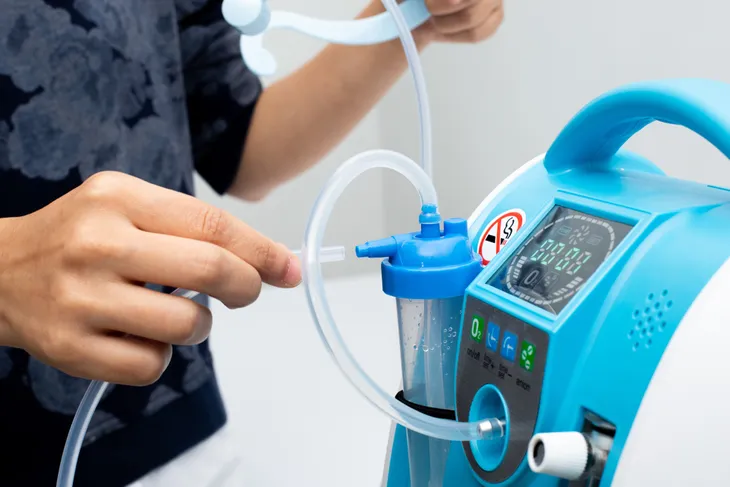If you’re the type that always seems to have dry nostrils and nasal passages – even when you’re probably hydrated – it can be a bit frustrating. There are non-steroidal gels and sprays you can use to temporarily relieve the symptoms (which can include itchiness and irritation or even nosebleeds), but chronic dry noses may point to other problems.
These possible health woes can range from needing to change your diet or environment or can be indicators of actual disorders that should be diagnosed by a medical professional. So if a dry nose constantly bothers you, here are seven possible causes to consider…
Sjogren’s Syndrome
This is considered a chronic disease that has been linked to a dry nose, eyes, and mouth. While it’s not considered life-threatening, it does cause “your immune system to go haywire and attack healthy cells instead of invading bacteria or viruses,” says WebMD, meaning it falls into the autoimmune disease category.
With this disease, the white blood cells responsible for attacking germs turn on your glands responsible for maintaining proper moisture of your nose and other areas. In fact, those with Sjogren’s often can’t produce tears or saliva. Swollen glands and stiff joints are other symptoms of this disease, adds the source.
Oral Medication Side Effects
Livestrong notes an “extremely dry nose” can be traced to the use of simple over-the-counter drugs like an antihistamine, meant to combat allergies. “Although effective for a runny nose, antihistamine sprays and drugs often contain atropine, which can dry out the nasal passage,” explains Livestrong.com.
If you’ve recently taken antihistamines and notice a pattern of dry nose, or you’ve started a prescription medication and are experiencing dry nasal passages, then you could chat with your doctor or pharmacist about possible solutions.
Medicated Nasal Sprays
Nasal sprays designed to open up your nasal passages due to congestion can actually end up drying out your nose – “particularly when they are used for more than a few days,” according to Med-Health.net. It adds that certain sprays have a “rebound effect” that requires you to use them for longer for desired results.
Meanwhile, there are nasal sprays out there meant specifically to treat dry nose and do not contain medicated ingredients (they’re usually a saline solution). These types of sprays won’t help with allergies or congestion, but they will provide temporary relief from your desert-like nose.
Environmental Factors
HealthyHype.com explains that just the area you live in could be contributing to your dry nose. Lack of humidity can exist in hot or cold conditions, resulting in your nasal passages drying up. “People living in these conditions may adapt to the dry environment but still experience dryness in extremely dry weather,” explains the source.
Another possible environmental cause – this one indoors – is air conditioning. Air conditioning strips moisture from indoor air, and “intermittent exposure” to air conditioning throughout the day can make it tough for your nasal passages to adjust, it adds. This can also result in excess mucus secretion and you’ll have a runny nose instead of a dry one.
Oxygen Therapy
People that suffer from sleep apnea that interrupts breathing during rest may have a continuous positive airway pressure (CPAP) machine to assist them throughout the night. However, according to The Mayo Clinic, this type of therapy can end up drying out your nose or mouth.
These devices can feature a heated humidifier (with adjustable humidity levels) that can help alleviate this side effect, according to the clinic. Saline solutions at bedtime can help, but the source notes your doctor may turn to a steroidal spray if your problem isn’t fixed by heated humidity.
Dehydrating Diets
StyleCraze.com (a website for women’s health and beauty) says you can tweak your diet to deal with an arid nose. First of all, you should be drinking a lot of water – about 8-glasses a day – to ensure your body has enough to go around.
On top of that, the site says that hot or spicy food or liquid-heavy meals (like soup) can actually help moisten the nostrils. The source also recommends taking in more protein to help fight off any infections. However, it warns you should cut down on caffeine, alcohol, and salt because they are “dehydrating agents”.
Atrophic Rhinitis
A post on PubMed Health explains this is a chronic condition without a known cause that can result in “thick dry crusts in a roomy nasal cavity”. This is due to the gradual reduction in size (atrophy) of the mucous nasal lining and the underlying bone.
Other associated symptoms include loss of sense of smell (and on the flipside is cacosmia, which is imaginary unpleasant odors) and nosebleeds, it adds. Atrophic Rhinitis can exist on its own or be a secondary condition to another medical issue, it adds. Chances are this isn’t the cause of your dry nose if you live in the U.S., because the condition is most common in tropical countries, explains the post.










